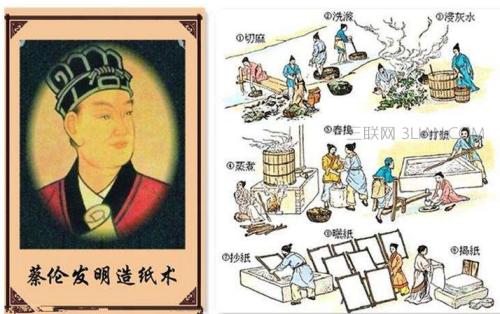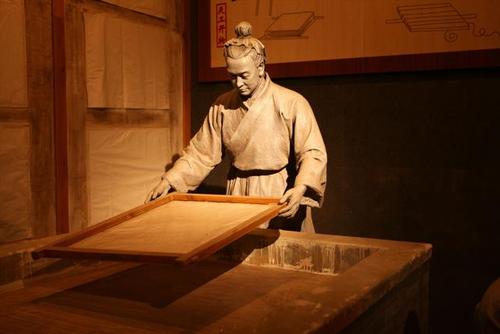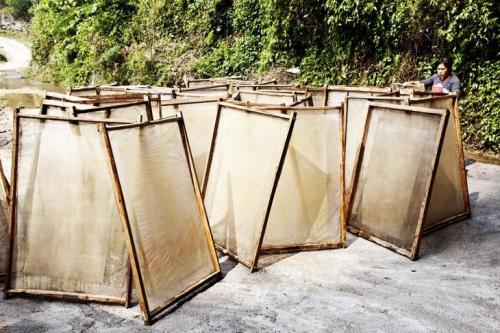Recently, China Economic Net published an article entitled "throw away the crutches and build ideals" The author is from an Economic Research Institute in Shanghai. The paper mentions the current situation of China's import of waste paper and its utilization, lists the data, and puts forward that China's paper industry "should work together to control foreign waste paper, and never allow anyone to focus on immediate interests, advocate foreign waste paper import with all kinds of excuses, and only lose foreign waste paper" Only by opening up foreign crutches to import waste paper and building an ideal lighthouse can we inherit the glory of our forefathers, carry forward them, and make steady progress on the road of continuous innovation and catching up with and surpassing the advanced ones. " It's my point of view.
How to realize green sustainable development in traditional industries? It's a topic that our paper industry has been discussing for a long time, and constantly exploring. The author and his organization stand outside the industry and give advice for the paper industry. We should first express our gratitude. The healthy development of China's paper industry needs the attention of the society, and also needs more knowledgeable people to give advice.

However, from the perspective of the article, most of the arguments put forward by the author come from network information. The author does not know about the paper industry, has no field research or interview, or has other deeper reasons, which leads to the view put forward by the author is not consistent with the current national environmental protection policy, and is not applicable to the development of China's paper industry.
As early as 2013, general secretary Xi Jinping put forward in his speech: saving resources is the fundamental policy to protect the ecological environment. He stressed that we should make great efforts to economize and use resources intensively, promote the fundamental transformation of the mode of resource utilization, vigorously develop the circular economy, and promote the reduction, reuse and resource utilization in the process of production, circulation and consumption.
Papermaking industry, especially the papermaking with waste paper as raw material, has a simple pulping process, low energy consumption and less pollution. It is a typical circular, low-carbon, ecological and sustainable development industry. Scholars who study the ecological environment call "waste paper" as "urban forest".

Waste paper is "forest", so it will not be "garbage"
And the author wrote in the article, "foreign waste paper It is a small fortress that must be conquered to completely ban the entry of foreign garbage. " Obviously, the concepts of imported waste paper, solid waste and foreign waste are confused.
The author has consulted several important documents issued by the General Administration of Customs in recent years. As the inspection organization of customs, the first consideration to determine whether the imported products are solid waste is the inspection standards and basis. Gb34330-2017 general rules for identification standards of solid waste is the only standard for identification of solid waste. The standard is a national mandatory standard issued only in 2017, which is regarded as a regulation and enforced.
From the standard point of view, at present, imported waste paper does still belong to solid waste (whether there is any difference between waste paper as a resource and waste is ignored here for the time being). However, in the notice of the General Administration of Customs on strengthening the supervision and control of imported solid waste and cracking down on "foreign garbage" smuggling issued on January 31, 2013, the General Administration of Customs defined "solid waste" as the national implementation of import license management and manageable waste The definition of "foreign waste" refers to the electronic waste, domestic waste, medical waste, industrial slag, used clothing, construction waste, etc. generated overseas as listed in the catalogue of prohibited import of solid waste.
Obviously, solid waste is not equal to foreign waste. Imported waste paper, which belongs to solid waste, will not be foreign waste.
What's more, waste paper is different from waste plastics and steel, which have been completely banned from import. It is the raw material of paper making with the least pollution and meeting the requirements of circular economy. For China, which is short of primary pulp, waste paper resource is the solid foundation for China to become a powerful country in paper industry.
According to the newly released annual report of China's paper industry in 2018, China consumed 54.74 million tons of waste paper pulp in 2018, accounting for 58% of the total pulp consumption, of which 16% were made from imported waste paper and 42% from domestic waste paper. Among the top 30 enterprises in China's papermaking output, 19 enterprises have production lines using waste paper for papermaking.
These data fully show that waste paper is an indispensable raw material for China's paper industry, and 16% of the imported waste paper is the third largest raw material source of China's paper industry besides domestic waste paper and imported wood pulp, which is the sum of the fourth largest raw material source of domestic wood pulp and the fifth largest raw material source of non wood pulp (reed pulp, bagasse pulp, bamboo pulp, rice wheat straw pulp, etc.).

Why does the paper industry not advocate to cancel all imported waste paper at this stage?
First of all, it has no practical significance to reduce the import of foreign waste. As mentioned above, the imported waste paper itself is not foreign waste, and now the impurity content of imported waste paper has dropped to less than 0.5%, which is the lowest possible impurity content of waste paper in theory. In particular, after strict inspection by the customs inspection and quarantine authorities at home and abroad, the amount of other impurities entering the country with imported waste paper is very small.
Even if there are a very small amount of impurities that may be brought in, through the innovation and investment of domestic paper enterprises in the production process, waste residue utilization and other links, the minimum utilization of resources can be realized, and the zero discharge of solid waste has been achieved in some enterprises.
Secondly, China's paper industry is facing a long-term shortage of fiber raw materials. The domestic production of raw wood pulp is insufficient, and the growth space is limited. The utilization rate of domestic recyclable waste paper is close to the limit. Although non wood pulp has development prospects, it still faces the technical problems of large-scale production and environmental protection in the short term, and the increment will not be very fast.
Therefore, we can only import fiber raw materials from abroad to support the development of the industry, which not only consumes a lot of foreign exchange, but also increases the external dependence of Chinese enterprises and weakens their competitiveness.
According to the annual report of China Paper Association, in 2018, China's paper and paperboard production was 104.35 million tons, a decrease of 6.24% compared with the previous year, which was the fastest year for the paper industry since the financial crisis in 2008. There was the impact of the domestic macro environment, and the sharp decline of imported waste paper was also an important reason, which not only brought business risks to the enterprises, but also brought risks to the upstream and downstream enterprises Recycling, equipment, chemical industry, packaging, printing, logistics and other related industries have brought impact.
Since 2012, the annual central economic work conference has taken "seeking progress in stability" as the general tone of China's economic work, and the development of the paper industry has been closely following the national policy, promoting the high-quality development of the industry with transformation and upgrading. However, if there is no "stable" supply of raw materials, the "advance" of the industry will not be guaranteed.
For the controversial articles, it is proposed that only after "losing the foreign crutches" can the paper industry be "stable and far-reaching", which is not only a one-sided and wrong understanding of the national environmental protection policy, but also a lack of basic understanding of the paper industry.
Now many friends from media and research institutions are very concerned about the development of China's paper industry, and they are also learning about the paper industry through various channels. Here we hope and welcome everyone who pays attention to the development of the paper industry to communicate with China Paper Association, China paper magazine and other authoritative organizations and media, so as to understand the real development of the industry through us We will continue to put forward good and feasible suggestions for the development of China's paper industry.